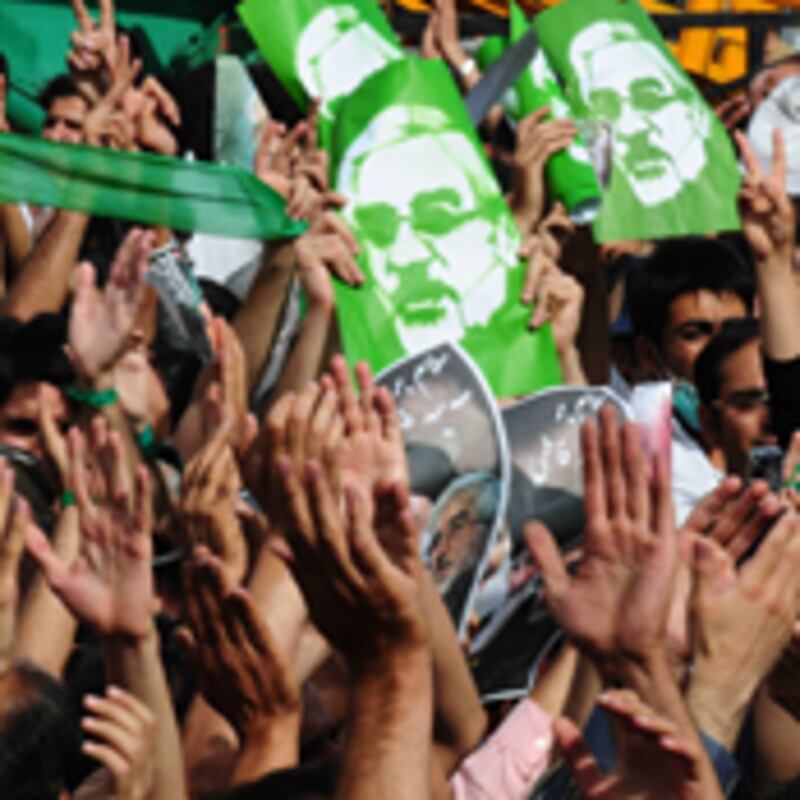
When protests against the official results of Iran’s presidential election were accompanied, almost immediately, by a media crackdown, thoughts turned inevitably to Tiananmen Square. On June 4 of this year, the world marked the 20th anniversary of the Chinese government’s brutal crackdown of the student protests in Beijing. It was a milestone that prompted me to go back over my memories of that time, of covering the remarkable student movement from within the square for CBS News, and of having the government pull the plug on our coverage on the evening of May 20, 1989.
With these memories fresher than they had been for years, the Iranian government’s move to control information within Iran and the information that left Iran brought reflexive associations and deep concerns.
Despite the surface similarities, this is not Tiananmen in 1989. The proliferation of information technology and the phenomenon of citizen journalism have made it much harder now to turn the lights out.
When a regime exercises its power to repress, it first turns out the lights: If it can’t control the story, it tries to make the story disappear. Internally—and this is as true of Iran today as it was of China 20 years ago—it seeks to keep its citizens from connecting with each other, tries to keep the freedom cries originating with students and in cities from spreading to rural areas and the general populace.
A repressive regime wants to be able to push its own version of events, without competition. Externally, governments of this sort know the world is watching and will do whatever they can to preserve the fiction that they enjoy the support of the people.
When, in the wake of the disputed vote that returned President Mahmoud Ahmadinejad to power, Iran’s government shut down the Internet, texting, and out-of-country calls, blocked access to social-networking sites, and imposed tight restrictions on foreign journalists, it was making a strong, if inadvertent, commentary on the legitimacy of its claim to popular support. If the people are truly behind you, you don’t need to carry out your business in the dark.
Within hours, and despite the blackout, we began to hear ominous reports of government forces entering universities in Tehran, of beatings, arrests, and even killings. And we have seen, every day since then, a steady stream of video and pictures delivered via Internet proxy servers on sites such as YouTube and Flickr, and small bursts of text—like old telegraph dispatches—by way of Twitter that, taken together, give us an incomplete but vital window into what is happening on the streets of Iran, a necessary complement to the reports of mainstream-media correspondents who must operate within the constraints of Iranian state censorship.
Despite the surface similarities, this is not Tiananmen in 1989. The Christian Science Monitor references the equation, seen on blogs such as Read Write Web, that “Tiananmen + Twitter = Tehran.” The proliferation of information technology and the phenomenon of citizen journalism have made it much harder now to turn the lights out than it was two decades ago. Oral history once kept alive for generations the stories unsanctioned by official propaganda; now social-networking tools have the power to spread the people’s story around the world, instantly.
It is too soon to know or to say how the situation in Iran will turn out, but there are lessons in this for our own country, for a democratic system more fragile than we at times like to believe. One of these lessons is the centrality of freedom of the press to the entire enterprise of democratic government: You cannot have the latter without the former. And the other is the lesson that citizen journalism is a way for the people to hold on to freedom of the press, even in times of oppression. In a turn of phrase that seems to be cropping up everywhere, the revolution may not be televised…but it very well could be Twittered.
Dan Rather is anchor and managing editor of HDNet’s Dan Rather Reports, which this week, beginning Tuesday night, is airing and investigative report on the problem of private prisons. For 24 years, he served as anchor and managing editor of the CBS Evening News with Dan Rather. His books include The American Dream, Deadlines and Datelines, The Camera Never Blinks, and The Palace Guard.






